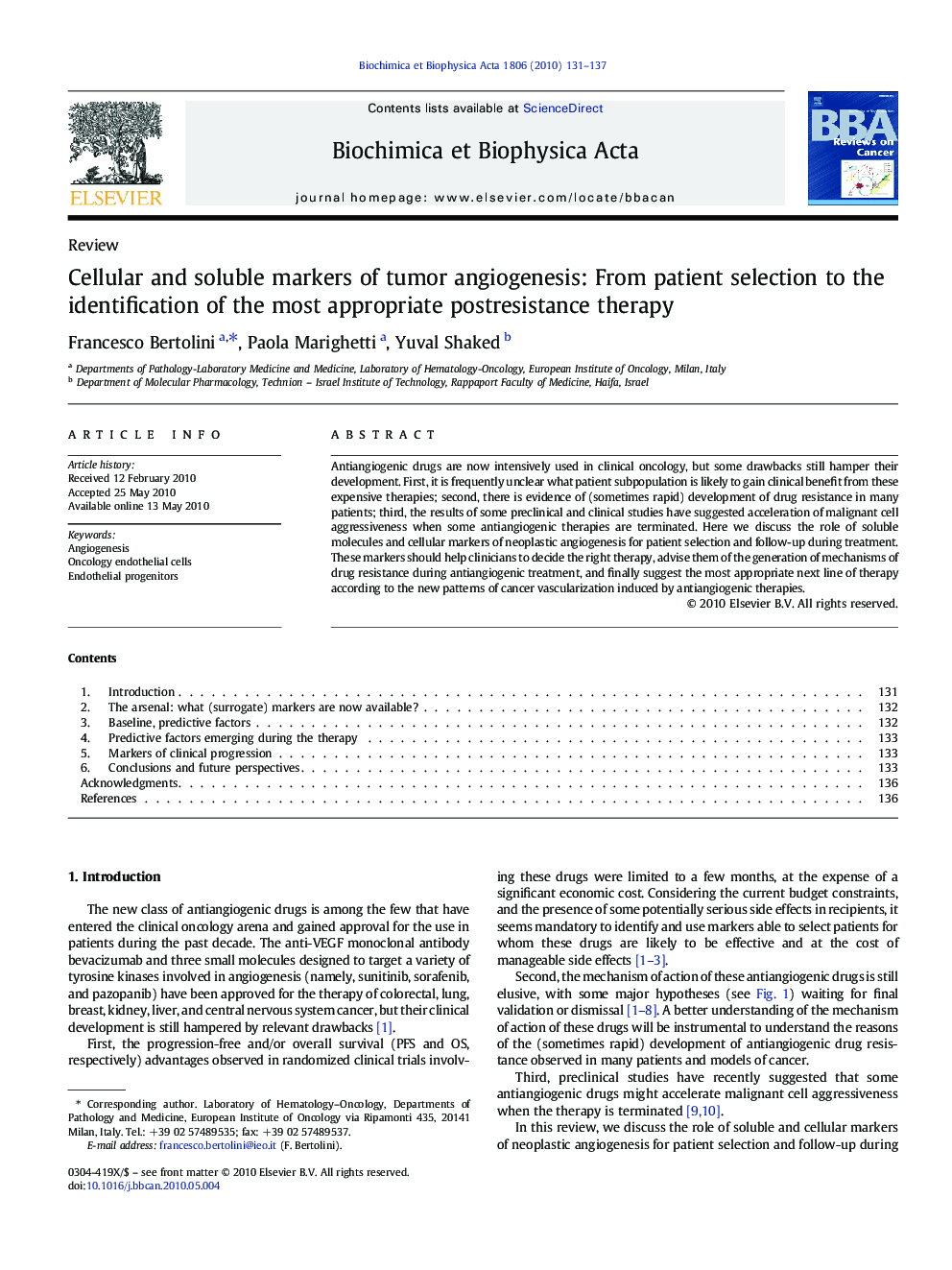| Article ID | Journal | Published Year | Pages | File Type |
|---|---|---|---|---|
| 2101007 | Biochimica et Biophysica Acta (BBA) - Reviews on Cancer | 2010 | 7 Pages |
Abstract
Antiangiogenic drugs are now intensively used in clinical oncology, but some drawbacks still hamper their development. First, it is frequently unclear what patient subpopulation is likely to gain clinical benefit from these expensive therapies; second, there is evidence of (sometimes rapid) development of drug resistance in many patients; third, the results of some preclinical and clinical studies have suggested acceleration of malignant cell aggressiveness when some antiangiogenic therapies are terminated. Here we discuss the role of soluble molecules and cellular markers of neoplastic angiogenesis for patient selection and follow-up during treatment. These markers should help clinicians to decide the right therapy, advise them of the generation of mechanisms of drug resistance during antiangiogenic treatment, and finally suggest the most appropriate next line of therapy according to the new patterns of cancer vascularization induced by antiangiogenic therapies.
Keywords
Related Topics
Life Sciences
Biochemistry, Genetics and Molecular Biology
Cancer Research
Authors
Francesco Bertolini, Paola Marighetti, Yuval Shaked,
